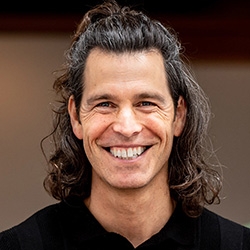

NVC Resources on Dialogue
-
A chosen, interdependent world… In most cases, that's sure not the world we live in today, is it. But it could be the world we live in tomorrow. And you can choose to be part of bringing that better world to life – to be part of a gradual, joyful transformation – simply by using the dynamic, living power of Dialogue.
-
Facilitated dialogue helps conflicting parties build understanding and explore solutions.
-
In Yoram’s 2021 course, participants delved deeper into their NVC practice so they were better prepared to meet conflict head-on. In this 5-session series, Yoram explores: the power of empathy to change the trajectory of heated conversations embracing the internal conflicts of the different parts of ourselves how to approach differing views peacefully the use of NVC to help let go of judgments how to confidently ask for what you want
-
Join Yoram Mosenzon in his 4 session course. It is designed to help you more fully integrate NVC values and language into your daily life. Plan on practicing Nonviolent Communication's Radical Honesty through demonstrations, role-playing, and exercises designed to help you more fully integrate NVC values and language into your daily life.
-
When we're judging we're less able to access both what we care about and constructive next actions. Instead, create more internal space and agency starting with connecting to your feelings and needs; then feel your grief or disappointment; followed by getting curious about the other party's needs and context -- and then based on collective needs and the long term effects make requests or take aligned action that works for all.
-
Reactivity can harm relationships, but there are three keys to prevent or dissolve reactivity: discernment (recognize reactivity and interrupting it), transparency (express feelings and wants honestly and making simple requests), support for conscious connection (remind ourselves to practice prioritizing connection in interactions). Practice these to maintain fulfilling relationships and reduce impacts caused by reactivity.
-
Miki Kashtan shares how to build trust, balance power, and welcome honest “no’s” in dialogue.
-
Through your dialogues at home, where the stakes are often very high, you can increase your ability to meet the challenges of life everywhere with empathy, goodwill and authenticity. Please listen to this inspiring recorded telecourse with Miki Kashtan and learn how!
-
Explore compassionate ways to handle volatile counseling situations in dialogue form.
-
Conflict is a normal and natural part of life. To varying degrees, it happens whenever two or more people consistently spend time together. Resolving conflict effectively and peacefully, in a way in which all parties feel respected and valued, does not feel natural for those of us who grew up with punitive, adversarial, or avoidant approaches to conflict. Eric offers some tips for approaching conflict.

Quick Links
Subscription Preferences
Stay In Touch!
Looking for ways to keep up with NVC Academy news, get special offers, free resources, or words of inspiration? Here are five ways to stay engaged:










